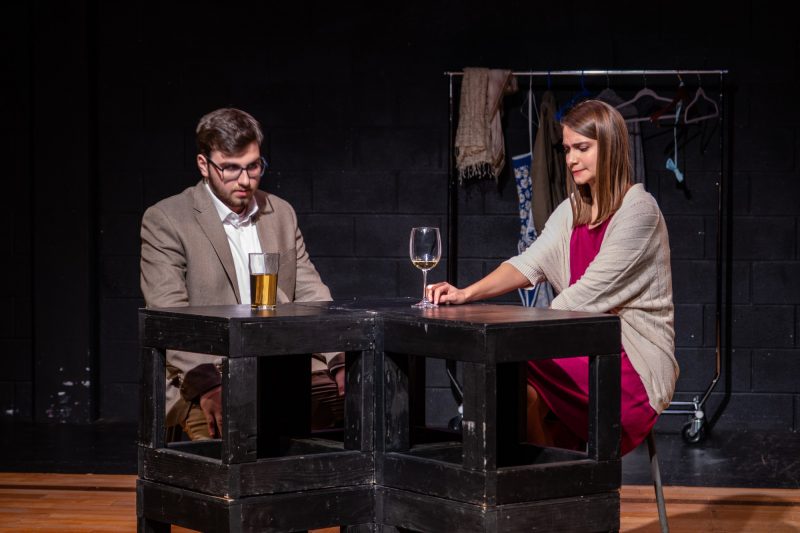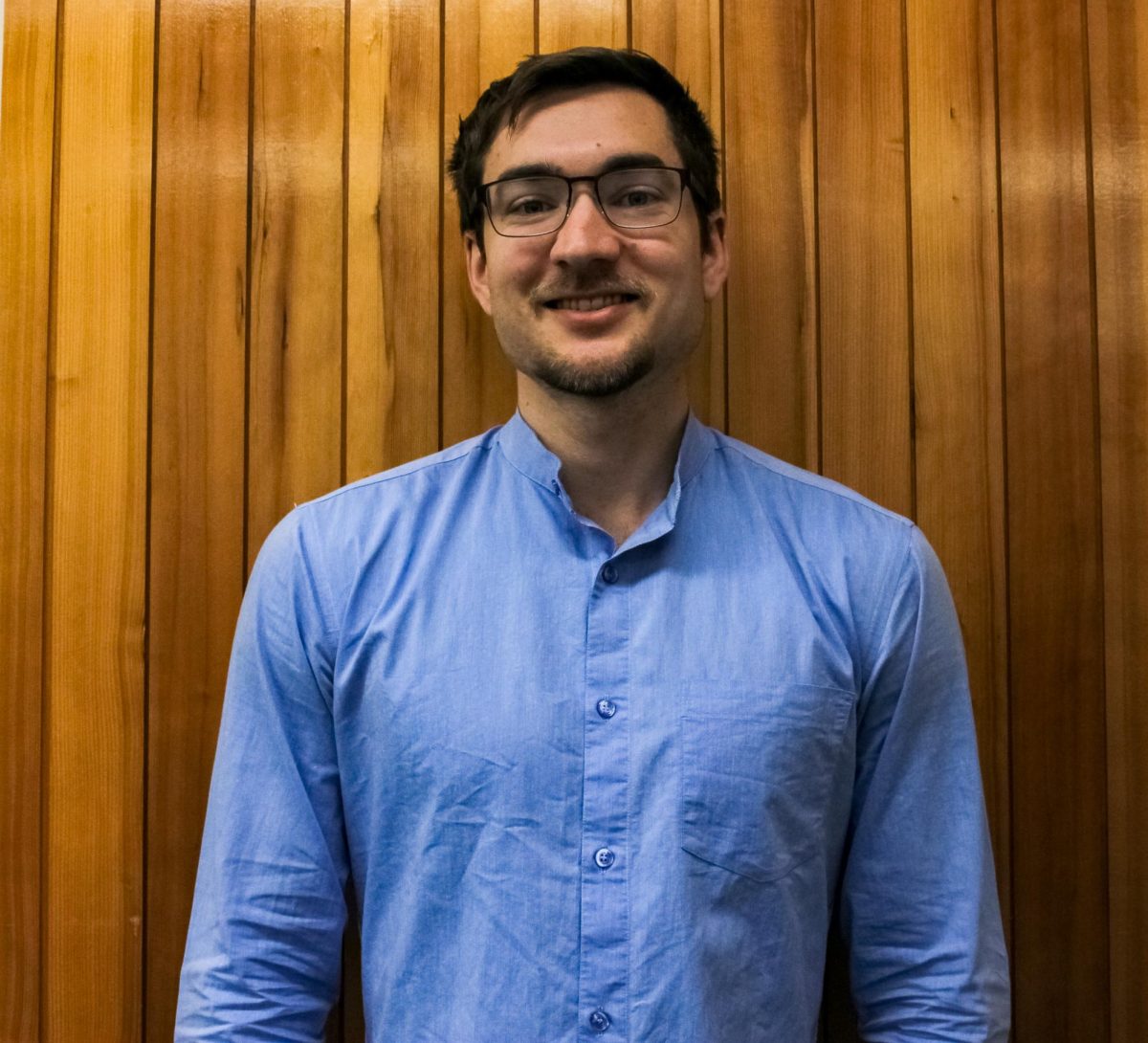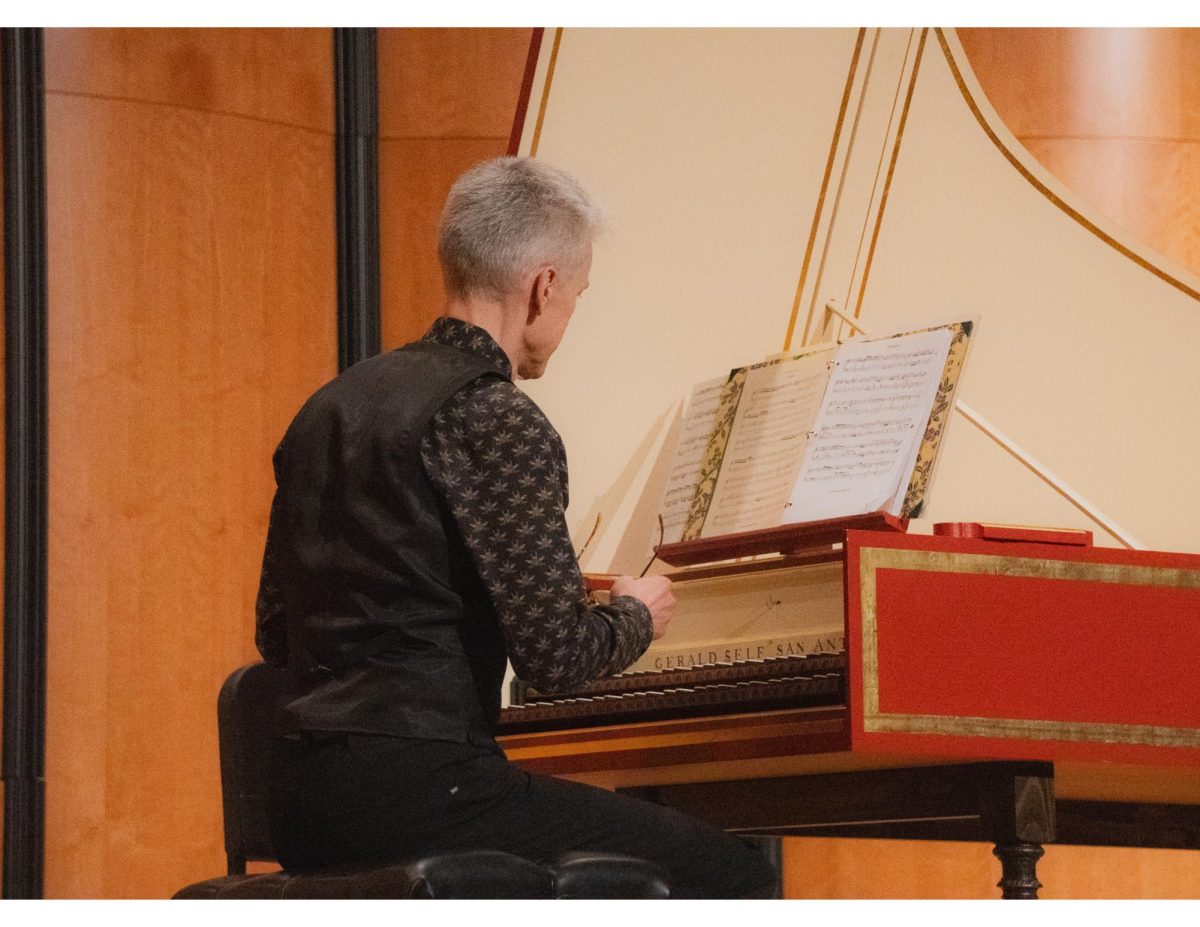“We’re not there anymore, and we haven’t been there for years,” Jerry tells his former lover Emma in the first scene of last weekend’s Trinity University Players (TUPS) show, “Betrayal.” In this show, however, time is not so simple.
The play, adapted from a script by playwright Harold Pinter and directed by senior and TUPS president Mindy Tran, moves backwards in time from 1977 to 1968, chronicling the turbulent relationship between Jerry, played by sophomore Michael Fain; Emma, played by sophomore Kathleen Arbogast, and Robert — Emma’s husband and Jerry’s best friend — played by junior Alex Bradley.
When I watched “Betrayal” last Saturday, some part of me was expecting a basic and perhaps melodramatic play about a heterosexual love triangle. However, I emerged impressed by how the play subverts audience expectations to examine what it means to “betray” one another — and by how four theatre students in Texas were able to perform moderately convincing British accents for two hours.
I was fascinated by how the play goes beyond the literal “betrayal” of Emma and Jerry’s affair to explore the more mundane, yet also more tragic betrayal that occurs when you realize that a cherished memory didn’t occur how you thought that it did or that a trusted person in your life isn’t who you thought they were. The scenes of the play, while scattered across different time periods, are united by the presence of memories. Characters frequently find that their memories of events contradict each other, or that their loved one doesn’t remember a memory the way that they did. Alcohol— tea and grape juice were substituted for liquor and champagne in real life — also shows up frequently as a way for characters to bond and as something that reveals what they really think.
After the show ended, the four actors remained behind to answer students’ questions about the play and the rehearsal process.
Tran had prepared to direct “Betrayal” last semester, with a very different cast. Sam Gabelmann, played the waiter but was not on the original cast from last semester. Instead, Bradley was originally set to play the waiter, and two other actors were playing Jerry and Emma.
“I wasn’t expecting things to be the same as last semester, just because we had two new people and their insights on their characters were different,” Tran said. “It was interesting because this was the first full-length play that I directed, so I was just going to do what I did last semester, but I realized that that wouldn’t have been a good directorial choice, because our cast and crew were different … Honestly, it was a completely different experience from last semester.”
The conversation eventually moved to how the actors learned their British accents.
“I had done a show in high school with a British accent. I used a CD to learn it then, and then I more or less remembered it,” Fain said.
“I’d never done [a British accent] before, which you could probably all tell, so I just started watching Doctor Who — that’s not a joke,” Bradley said.
Holly Gabelmann, senior and technical coordinator of TUPS, spoke about how “Betrayal” differs tonally from other plays that TUPS has performed.
“[In TUPS,] you see a lot of experimental work, a lot of new work, a lot of stuff that’s students have written — but this [play] is classic. It’s an absurdist piece, it’s a very well-known piece of theatre, so it’s really nice to see something that’s a little different than what we’ve put on recently,” Gabelmann said.
Audience members enjoyed the play’s unique use of language.
“I really liked this play. Seeing it the second time on Saturday, I understood a little bit more about the underlying implications of each of the words,” said senior Kendall Walshak. “I think my favorite example of that was the scene in the restaurant where Jerry and Robert are talking about playing squash, and Robert already knows about everything that’s going on, and Jerry doesn’t realize it, so ‘squash’ means something much deeper than just squash.”







